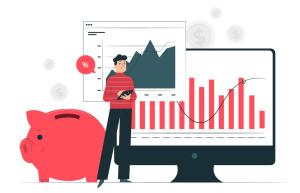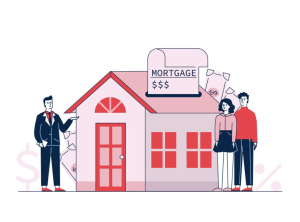The Money Charity’s latest statistics for June 2024 offer a comprehensive look at the current financial landscape in the UK. From personal debt levels to housing costs and financial inclusion, these figures provide valuable insights into the economic well-being of British households.
Personal Debt in the UK
As of the end of April 2024, people in the UK owed a staggering £1,850.1 billion in personal debt. This equates to an average debt of £65,143 per household and £34,487 per adult, representing approximately 97% of average earnings.
- Net mortgage lending increased by £2.5 billion in April.
- Net consumer credit lending saw a modest rise of £30 million.
- Citizens Advice Bureaux across England and Wales handled 233,873 enquiries in May 2024, a 6.67% increase compared to May 2023.
Mortgages, Rent, and Housing
The housing market continues to present significant financial commitments for UK residents.
- Outstanding mortgage lending stood at £1,623 billion at the end of April 2024.
- The average mortgage interest rate was 3.58%, translating to an average annual interest payment of £5,405 per household.
- Average house price for first-time buyers in Great Britain was £235,851 in April 2024, reflecting a 1.3% annual increase and a 0.6% monthly rise.
- Private rental prices saw a substantial increase, rising by 8.7% in the 12 months to May 2024.
Spending and Loans
Spending patterns and access to cash are also evolving.
- Cash machine transactions (including balance enquiries and rejected transactions) averaged 46.3 per second in May 2024, a 6.1% decrease from May 2023.
- The number of ATMs dropped from 50,300 at the end of 2022 to 47,711 at the end of 2023, marking a 5.2% decline.
- In Q4 2023, UK households spent £96.43 million daily on water, electricity, and gas, averaging £3.43 per household per day.
- Credit card balances bearing interest stood at 49.8% in March 2024, highlighting the ongoing reliance on credit.
Financial Inclusion
Financial inclusion remains a critical issue, with significant portions of the population lacking basic financial services.
- As of 2022, 1.1 million adults in the UK did not have a bank account, representing 2.1% of the adult population.
- According to the FCA Financial Lives Survey, in May 2022, 3.1 million people primarily used cash for transactions in the preceding 12 months.
- 1.5 million households did not have internet access in March 2021, including 18% of households with members aged 65+.
- The poverty premium, the extra cost low-income households pay for essential goods and services, was estimated by Fair By Design to be £4.5 million annually per parliamentary constituency, equating to over £430 per low-income household each year.
Conclusion
The June 2024 statistics from The Money Charity paint a detailed picture of the financial pressures facing UK households. With high levels of personal debt, increasing housing costs, and ongoing issues with financial inclusion, there are clear challenges ahead. However, understanding these trends is the first step towards addressing them and improving financial stability for all.






